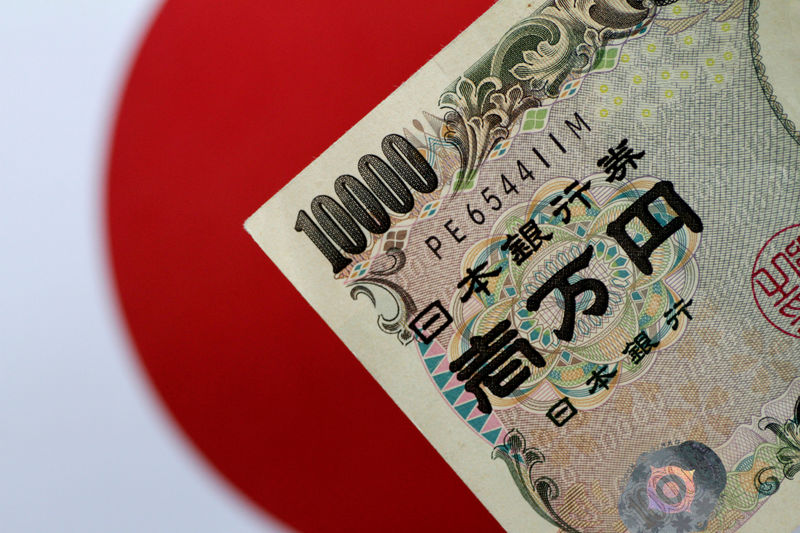By Ambar Warrick
Investing.com-- China’s yuan lagged gains in its Asian peers on Friday as the country introduced new COVID lockdown measures, while the yen saw volatile trade amid dovish signals from the Bank of Japan (BoJ).
The yuan was largely flat to the dollar as Chinese cities including Guangzhou and Wuhan rolled out new curbs to stem a recent spike in COVID-19 cases.
The move increases uncertainty over the Chinese economy, which is still reeling from a slew of lockdowns this year. But the offshore yuan rose 0.2% on Friday, with broader Asian currencies benefiting from weaker U.S. Treasury yields in the wake of strong GDP data.
The Indian rupee and Singapore dollar rose 0.2% each, with both units also set for a positive week.
The Japanese yen recovered from intraday losses to trade up 0.1% at 146.19, after the BoJ held interest rates at ultra-low levels as expected. The central bank also raised its inflation forecast for 2022, indicating more near-term pain for the Japanese economy.
Data earlier on Friday showed that inflation in Tokyo hit a 33-year high in October. The figure likely signals a similar jump in nationwide inflation for the month.
The yen is among the worst-performing Asian currencies this year, down around 30% for the year as a growing gap between local and foreign interest rates dented its appeal.
But the yen was set to end the week higher, taking support from a softer dollar and retreating U.S. Treasury yields.
Sentiment turned positive after data showed the U.S. economy grew more than expected in the third quarter. The reading also showed that U.S. inflationary pressures did not have as bad an impact on the economy as initially feared.
It drove expectations that the softer impact of inflation could spur less hawkish moves by the Federal Reserve in the coming months.
"Falling reverse repo usage may be an indicator that the Fed could at least slow the pace of quantitative tightening, but other than that, it looks mostly like speculation ahead of the FOMC meeting for some “pivot” hints," analysts at ING wrote in a note.
While the dollar rallied overnight, 10-year Treasury yields fell further below the 4% mark, indicating growing expectations for a less hawkish Fed.
Markets are still pricing in a 75 basis point hike by the Fed next week. But the central bank is expected to roll out a smaller rate hike in December.
The dollar index fell 0.2% on Friday, and was set to lose 1.4% this week.
